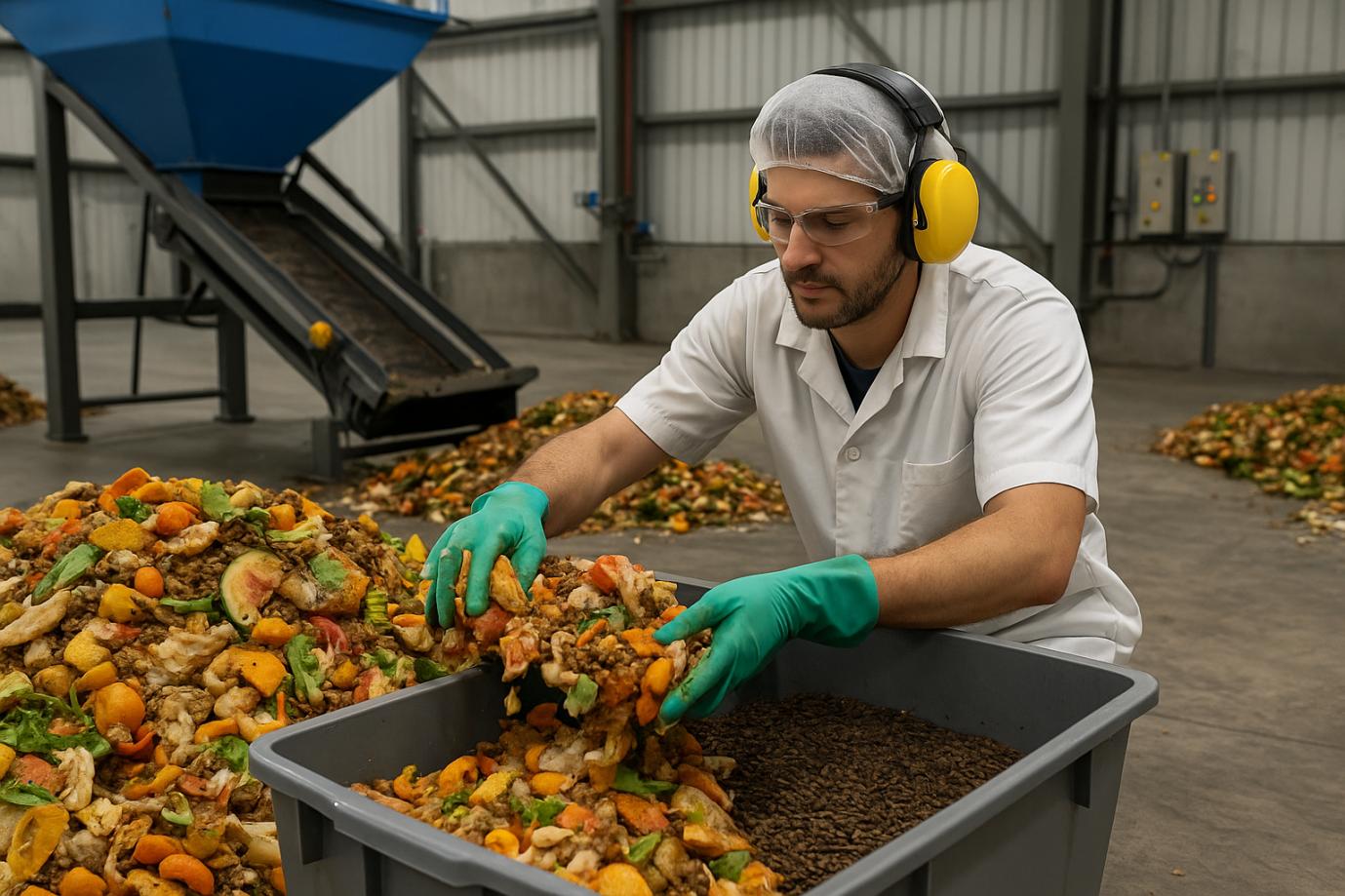
Recently, Reuters reported that Circa Biotech in Ain, United Arab Emirates, is converting piles of food waste into insect feed. This move seems to be an innovative practice to address the global problem of food waste. However, if analyzed in depth from the perspective of the alignment between business logic and sustainable development goals, the hidden business predicaments and structural contradictions in the industry cannot be ignored.
The scale of global food waste has far exceeded the scope of mere economic loss. According to data from the Boston Consulting Group, about 1.6 billion tons of food are wasted each year, equivalent to one-third of the global food production, which is enough to meet the needs of 2 billion people. This figure is twice the number of hungry people in the world at present. What is even more serious is that greenhouse gas emissions from food waste account for 8% to 10% of the global total, exceeding the combined total of the aviation and shipping industries. Although world leaders reaffirmed their commitment to halve food waste by 2030 in 2025, actual progress has been minimal. The waste rates in both developed and developing countries remain at around one-third. This phenomenon reveals that it is difficult to shake the deep-seated interest structure in the grain industry chain merely by relying on technological innovation or individual actions of enterprises.
Although the practice of Circa Biotech is innovative, its business model has significant limitations. Converting food waste into insect feed essentially involves transforming low-value waste into medium and low-value products. During this process, enterprises have to bear the high costs of garbage collection, classification and transportation, and at the same time face the risks of limited market capacity and large price fluctuations in insect feed. For instance, insect feed is currently mainly used in aquaculture and pet food fields. Its market size is far smaller than that of traditional feed, and there are still cultural barriers to consumers' acceptance of insect protein. Furthermore, this model is highly dependent on policy subsidies and environmental protection certifications. Once the relevant support weakens, the profitability of enterprises will be directly impacted.
From the perspective of the industrial chain, the core contradiction of food waste lies in the mismatch between supply and demand and the imbalance in the distribution of benefits. In developed countries, excessive packaging in the retail sector and consumers' preference for "perfect appearance" have led to a large amount of edible food being discarded. In developing countries, post-production losses are caused by the lack of cold chain logistics and backward storage technology. Circa Biotech's model only focuses on end-of-pipe treatment and does not address the root causes of waste in the production and distribution processes. For instance, in order to ensure the display effect on the shelves, supermarkets often destroy food that is close to its expiration date directly instead of reducing waste through discounted sales or donations. This systemic inefficiency reflects the fragmentation of interests among various links in the grain industry chain - producers pursue output, retailers pursue floor efficiency, and consumers pursue convenience, yet no one truly pays for the wasted costs.
From the perspective of return on investment, capital investment in the field of food waste governance shows the characteristics of "high risk, long cycle and low return". Compared with popular fields such as new energy and artificial intelligence, the research and development of technologies, infrastructure construction and market education for reducing food waste require continuous investment, and the payback period may last for several decades. The short-sighted tendency of the capital market makes it difficult for such projects to obtain sufficient financing, further restricting the possibility of large-scale application. Although the case of Circa Biotech has attracted media attention, there are still huge doubts about whether its business model is replicable and whether it can survive independently without policy support.
The solution to the global food waste problem needs to go beyond the technical aspect of "turning waste into treasure" and shift towards the reconstruction of the interest structure of the industrial chain. This includes establishing an internalization mechanism for waste costs (such as imposing taxes on destroyed food), improving cold chain logistics and storage technologies, adjusting consumer behavior patterns, and guiding capital towards long-term value areas through policies. Only in this way can innovative practices like Circa Biotech transform from "isolated cases" to "the norm", rather than struggling to survive in the tug-of-war between business logic and sustainable development goals.

The U.S. AI industry in 2025 is witnessing a feverish feast where capital and technology intertwine: from OpenAI’s valuation surging to $300 billion, to tech giants scrambling to pour hundreds of billions of dollars into expanding computing infrastructure, and the government rolling out national-level support initiatives such as the Genesis Mission, the entire sector is displaying a roaring momentum of expansion.
The U.S. AI industry in 2025 is witnessing a feverish feast…
When top-tier AI technological momentum meets the world's p…
On December 10, 2025, a shocking farce of power play unfold…
Recently, according to Bloomberg, the cocoa bean market in …
Recently, US President Trump's sharp criticism of his Europ…
The United Nations World Food Programme said that the inten…